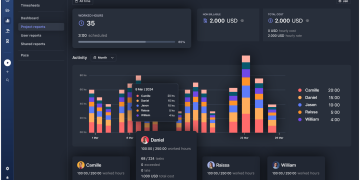Introduction
Human identity is a tapestry woven from countless threads—culture, memory, geography, experience, and aspiration. Among these, horizons occupy a unique place. Far from being mere lines where sky meets earth, horizons are symbolic, psychological, and experiential markers that shape how we perceive the world and, ultimately, ourselves. From the literal horizon of a sun setting over the ocean to the metaphorical horizon of ambition and imagination, our understanding of horizons profoundly informs our sense of identity.
In this essay, we will explore horizons in multiple dimensions: geographical, cultural, psychological, and philosophical. We will analyze how horizons influence self-perception, creativity, societal roles, and personal growth. By the end, it will become evident that horizons are not simply passive backdrops to human life—they actively mold our identity.
The Literal Horizon: Geography and Identity
At its most immediate level, a horizon is the visible boundary between earth and sky. For humans living in diverse terrains—mountains, plains, deserts, or oceans—this horizon has practical, emotional, and cultural implications.
Geography as Identity Marker
Consider the expansive horizon of the Sahara Desert. The vast, seemingly infinite sands shape not only survival strategies but also a sense of self. Those who grow up in open landscapes often develop a heightened sense of space, freedom, and introspection. In contrast, urban dwellers in dense cities, where horizons are blocked by towering buildings, may internalize a sense of confinement or structured routine. Psychologists suggest that childhood exposure to open or restricted vistas can subtly influence personality traits, creativity, and openness to experience.
The Horizon as a Compass
Horizons also act as natural compasses, guiding exploration and movement. Ancient sailors relied on the horizon for navigation, cultivating a culture of observation, patience, and adaptability. Even today, hikers and adventurers interpret the horizon to orient themselves. This relationship between the horizon and mobility fosters resilience and adaptability—qualities that become integral components of personal identity.
Cultural Horizons: How Societies Shape Perception
Beyond the literal, horizons function as cultural constructs. Every culture interprets the world through its own symbolic “horizons,” which shape collective and individual identity.
Horizons in Mythology and Religion
Many cultures embed horizons into mythology. In ancient Egyptian cosmology, the horizon (known as Akhet) symbolized the gateway between life and death, sunrise and renewal. In East Asian art and philosophy, mountains and rivers meet the horizon to convey harmony, balance, and interconnectedness. These representations are not mere artistic flourishes—they influence societal values, ethics, and spiritual perspectives, which in turn affect personal identity formation.

Horizons in Literature and Art
Literature frequently leverages horizons as symbols of ambition, limitation, or transcendence. A character staring at the distant sea may signify longing, opportunity, or existential questioning. In visual arts, horizon lines dictate perspective, space, and emotional tone. By internalizing these cultural cues, individuals assimilate broader cultural narratives into their self-concept, shaping identity in subtle but profound ways.
Psychological Horizons: The Mind’s Frontier
Horizons are not just physical—they exist in the mind. Cognitive psychology and developmental science suggest that the way we perceive and interpret horizons affects problem-solving, creativity, and self-concept.
The Expansive Mind
An unobstructed horizon can trigger a sense of mental expansion. Research in environmental psychology indicates that open vistas encourage abstract thinking, enhance cognitive flexibility, and improve mood. People exposed regularly to expansive horizons often report a heightened sense of agency, curiosity, and willingness to explore unknown territories—both literally and metaphorically.
Horizons of Imagination
Humans possess the unique ability to construct imaginary horizons. Planning a career, dreaming of travel, or envisioning personal transformation are all forms of horizon-setting. These imagined horizons act as scaffolds for identity development. They motivate learning, experimentation, and risk-taking, all of which refine self-perception and social roles.
Metaphorical Horizons: Aspirations and Growth
The concept of a horizon extends into the metaphorical realm—representing ambition, potential, and personal limits. These metaphorical horizons are central to understanding human identity.
The Horizon as a Motivator
A personal horizon, whether defined by goals, dreams, or moral aspirations, pushes individuals to transcend current limitations. By striving toward distant goals, people actively shape their self-concept, moral compass, and life narrative. The act of moving toward a horizon—rather than simply imagining it—creates identity through experience and choice.
The Tension Between Near and Distant Horizons
Not all horizons are fixed. Some recede as one approaches them, symbolizing ongoing growth and infinite possibilities. This tension between the reachable and the distant mirrors the human condition: identity is never static, but continuously constructed in the pursuit of knowledge, meaning, and mastery.
Horizons in Social Context: Collective Identity
Horizons are also social phenomena. They define boundaries, connections, and perspectives that shape communal identity.
Shared Horizons and Community
Communities often form around shared horizons—coastal towns identify with the sea, mountain villages with peaks, and urban districts with skylines. These shared physical or symbolic horizons cultivate belonging and mutual understanding. Social identity theory suggests that when individuals align with collective horizons, they internalize communal values, norms, and aspirations as part of their personal identity.
Horizons of Conflict and Cooperation
Conversely, conflicting horizons can highlight differences. National borders, ideological limits, and cultural divides act as “social horizons,” influencing group behavior and intergroup relations. Negotiating these horizons requires empathy, adaptability, and critical thinking—all of which feed back into personal identity development.
Philosophical Horizons: The Infinite and the Unknown
Philosophically, horizons confront humans with the infinite and the unknown. They provoke questions about existence, purpose, and selfhood.
Horizons and Existential Thought
Philosophers from Kant to Heidegger have explored the horizon as a limit of perception and understanding. The horizon represents what is visible and knowable, but also what lies beyond comprehension. Engaging with this duality fosters self-reflection, humility, and a nuanced sense of identity that recognizes both potential and limitation.
Horizons as Ethical Challenges
Horizons also carry moral implications. Decisions made with distant consequences—environmental stewardship, technological innovation, or social justice—require individuals to project themselves into the future. This forward-looking perspective expands ethical horizons, integrating responsibility into identity.
Case Studies: Horizons in Practice
Coastal Communities
Consider fishermen in coastal regions. Their daily work revolves around observing the literal horizon—the line where sky meets sea. This constant interaction shapes their rhythm of life, their risk tolerance, and their worldview. These experiences embed resilience, attentiveness, and adaptability into communal and personal identity.
Urban Professionals
Contrast this with urban professionals whose horizons are largely architectural and digital. Skyscrapers, billboards, and screens form their perceptual boundaries. Their identity is shaped by the rhythm of structured schedules, social networks, and technological interfaces rather than natural landscapes. Even here, horizons—albeit constructed—remain central to identity.

Artists and Dreamers
Artists often manipulate horizons to explore self-concept and human experience. Salvador Dalí’s surreal landscapes and Ansel Adams’ panoramic photography exemplify how visual horizons can evoke emotion, stimulate reflection, and redefine perception. These artistic engagements reveal the active role of horizons in shaping personal and cultural identity.
Horizons and Identity in the Digital Age
In the 21st century, horizons are increasingly virtual. Screens, social media, and immersive technologies create new perceptual boundaries and possibilities.
Virtual Horizons
Online spaces provide expansive “digital horizons” where ideas, communities, and opportunities converge. Virtual reality, for instance, simulates open landscapes that can influence cognition and self-perception. These digital horizons expand identity beyond geography, allowing individuals to explore roles, cultures, and experiences previously inaccessible.
Challenges of Digital Horizons
However, digital horizons can be both empowering and limiting. Algorithmic feeds narrow perception, while curated content creates artificial boundaries. Recognizing and negotiating these digital horizons becomes a new dimension of identity formation—requiring critical thinking, self-awareness, and discernment.
Horizons as Metaphor for Lifelong Identity
Ultimately, horizons encapsulate the human journey: they are markers of limits and catalysts for growth. Identity is shaped through interactions with both visible and imagined horizons, constantly negotiating between known and unknown, attainable and aspirational.
Embracing Horizons
By consciously engaging with horizons—observing, imagining, and pursuing them—we actively construct our identity. Whether through geographic exploration, cultural immersion, personal ambition, or digital navigation, horizons provide the framework within which identity evolves. The horizon is simultaneously a boundary and an invitation—a reminder that we are defined not only by what we are but by what we seek to become.
Conclusion
Horizons are far more than distant lines or abstract ideas. They are dynamic, multifaceted forces that shape human identity across physical, cultural, psychological, social, and philosophical dimensions. By examining horizons, we gain insight into how humans navigate space, time, ambition, and community.
From the literal vistas that influence our perception of the world to the metaphorical horizons that guide our aspirations, horizons are both mirrors and molds of identity. They challenge us to grow, inspire us to explore, and remind us that the essence of self is found not merely in reaching destinations but in moving toward them. In a sense, our horizons define us as much as we define them.
Horizons, in all their forms, are therefore inseparable from the human experience. They shape who we are, who we become, and how we relate to the vast, ever-expanding universe around us.























